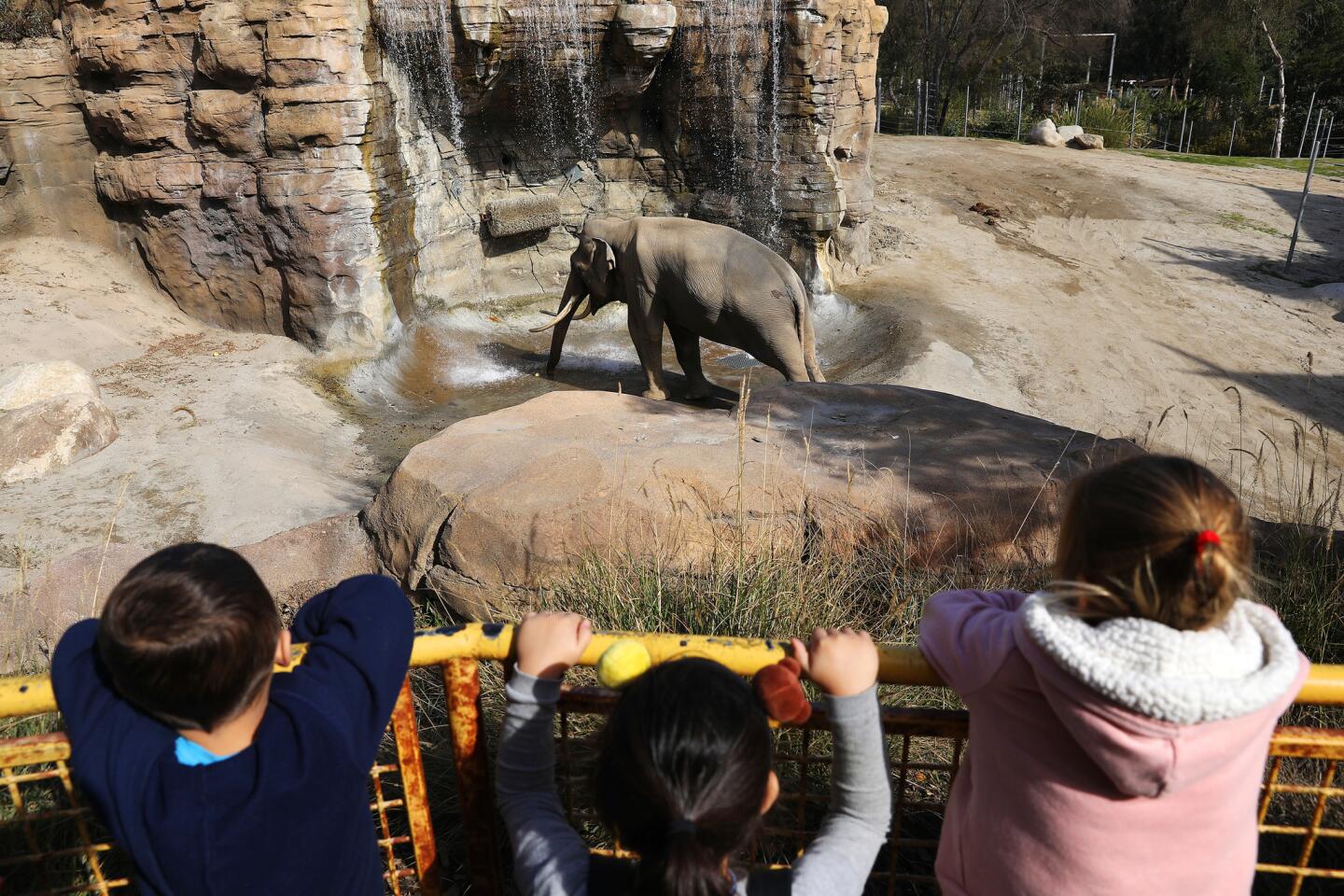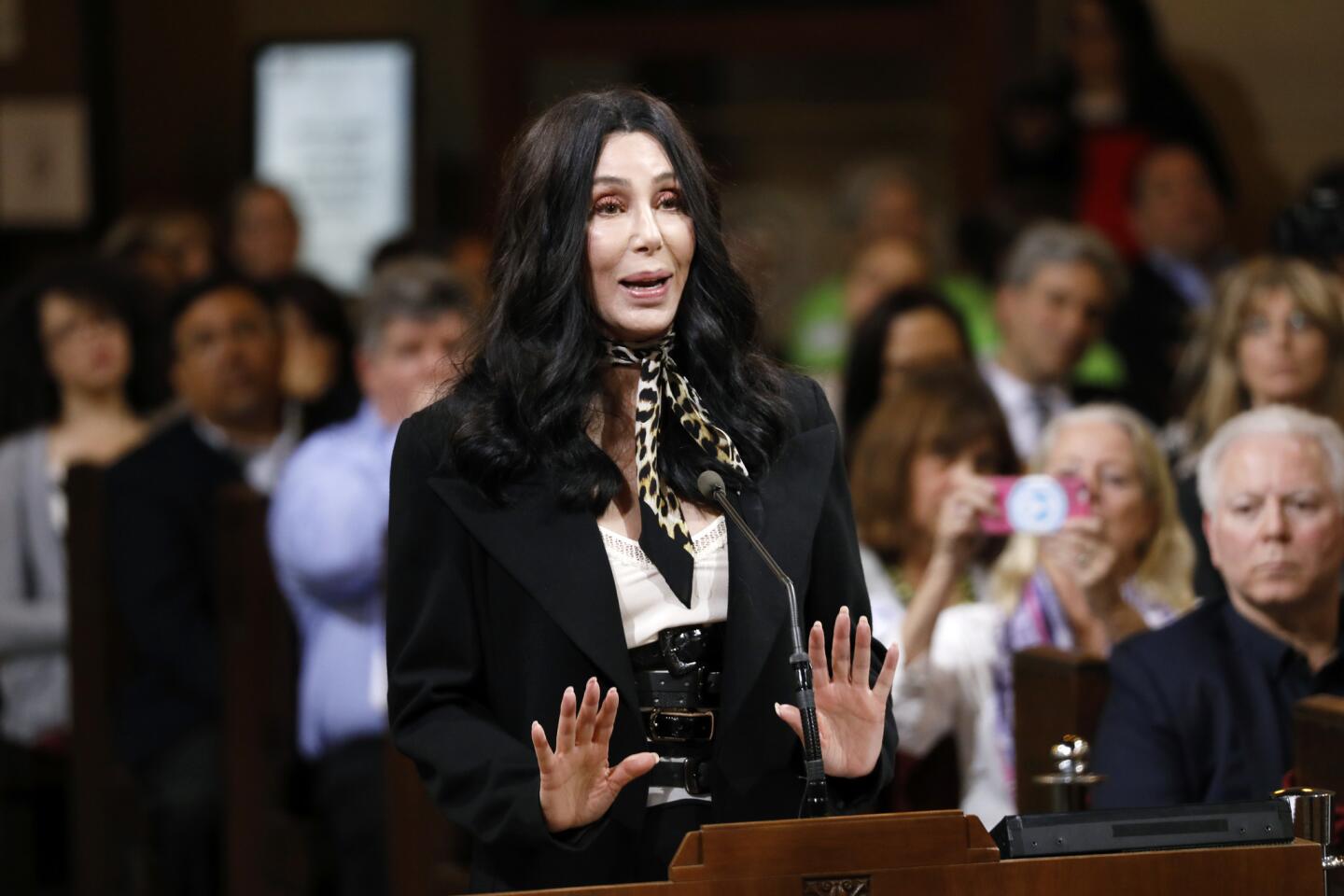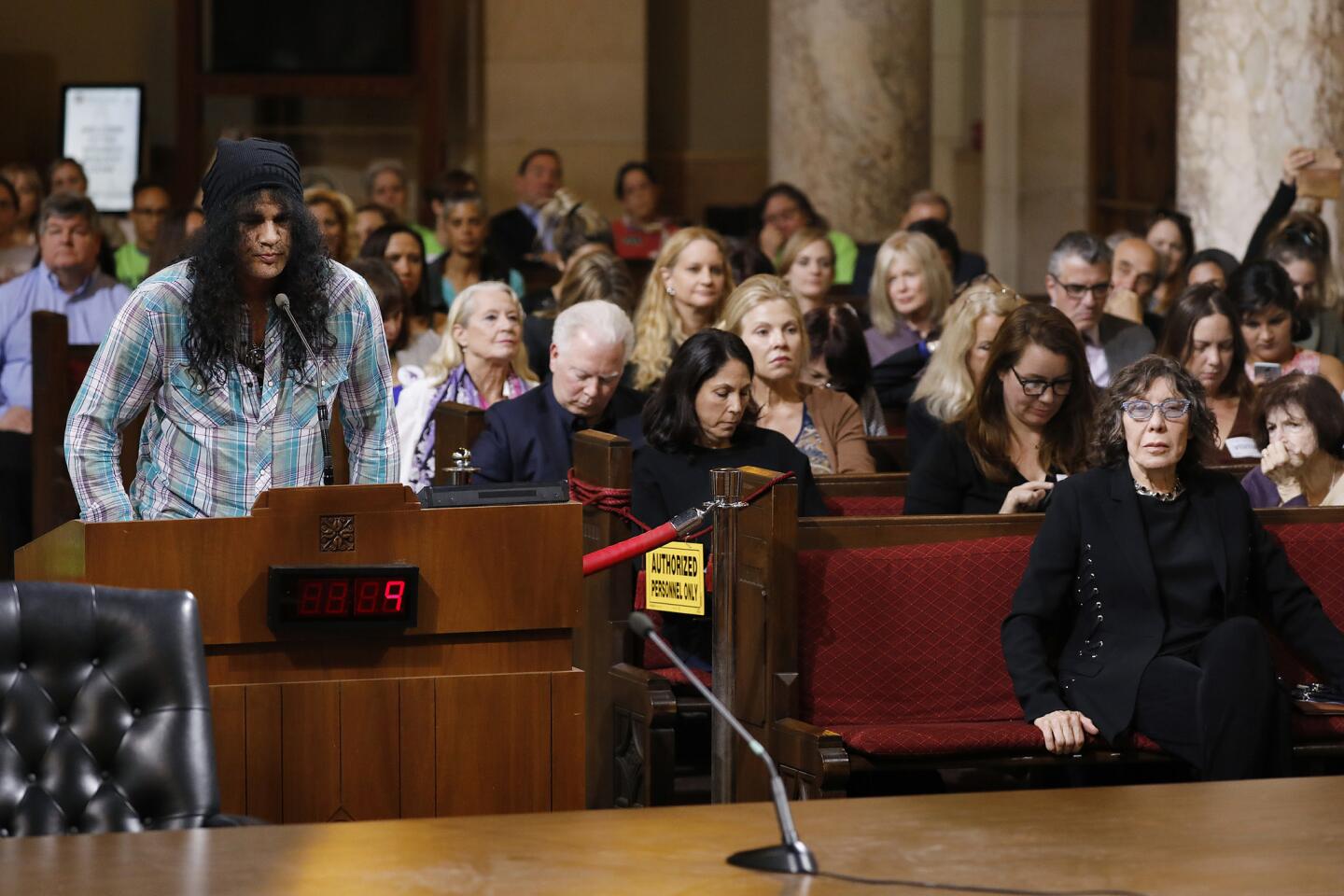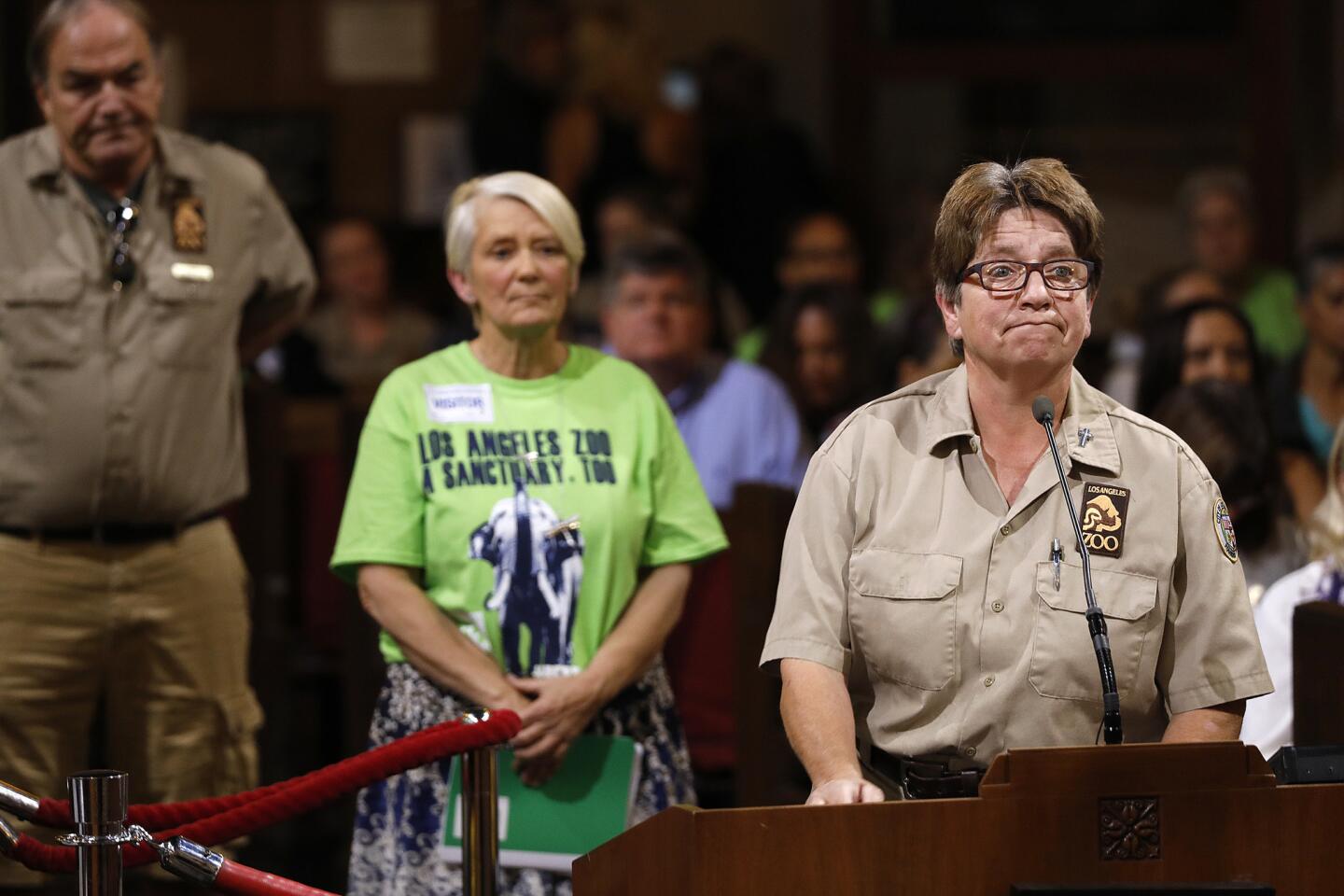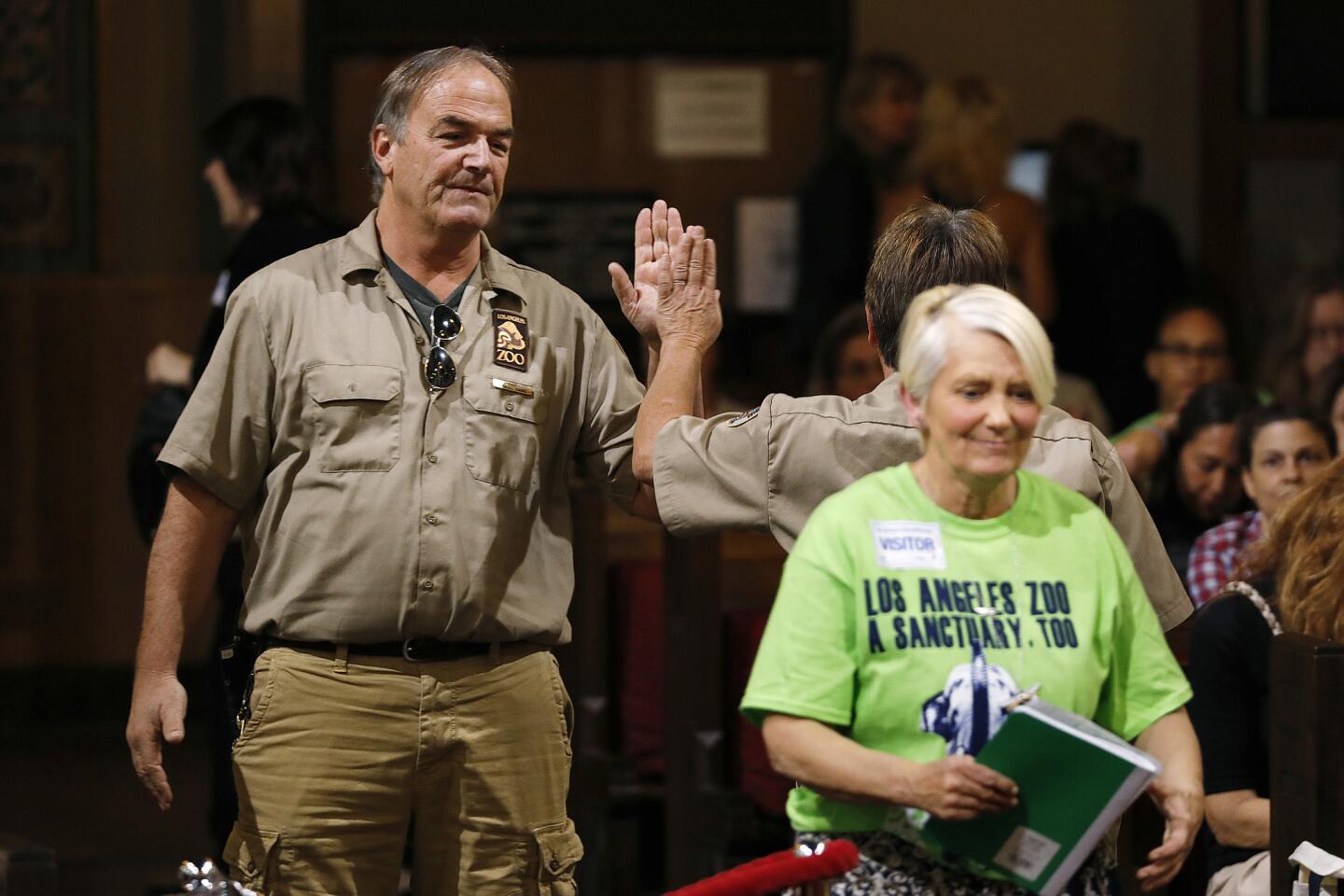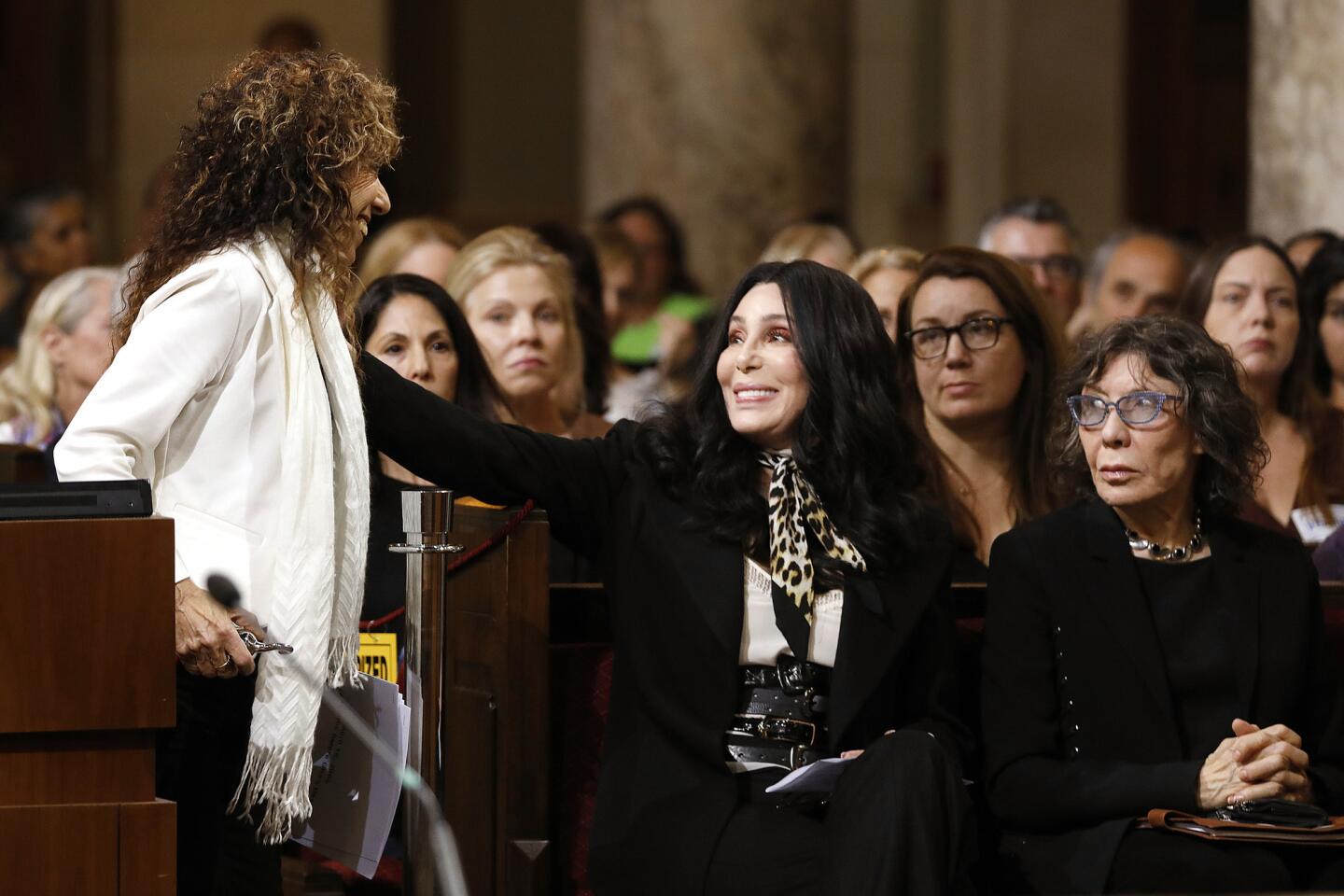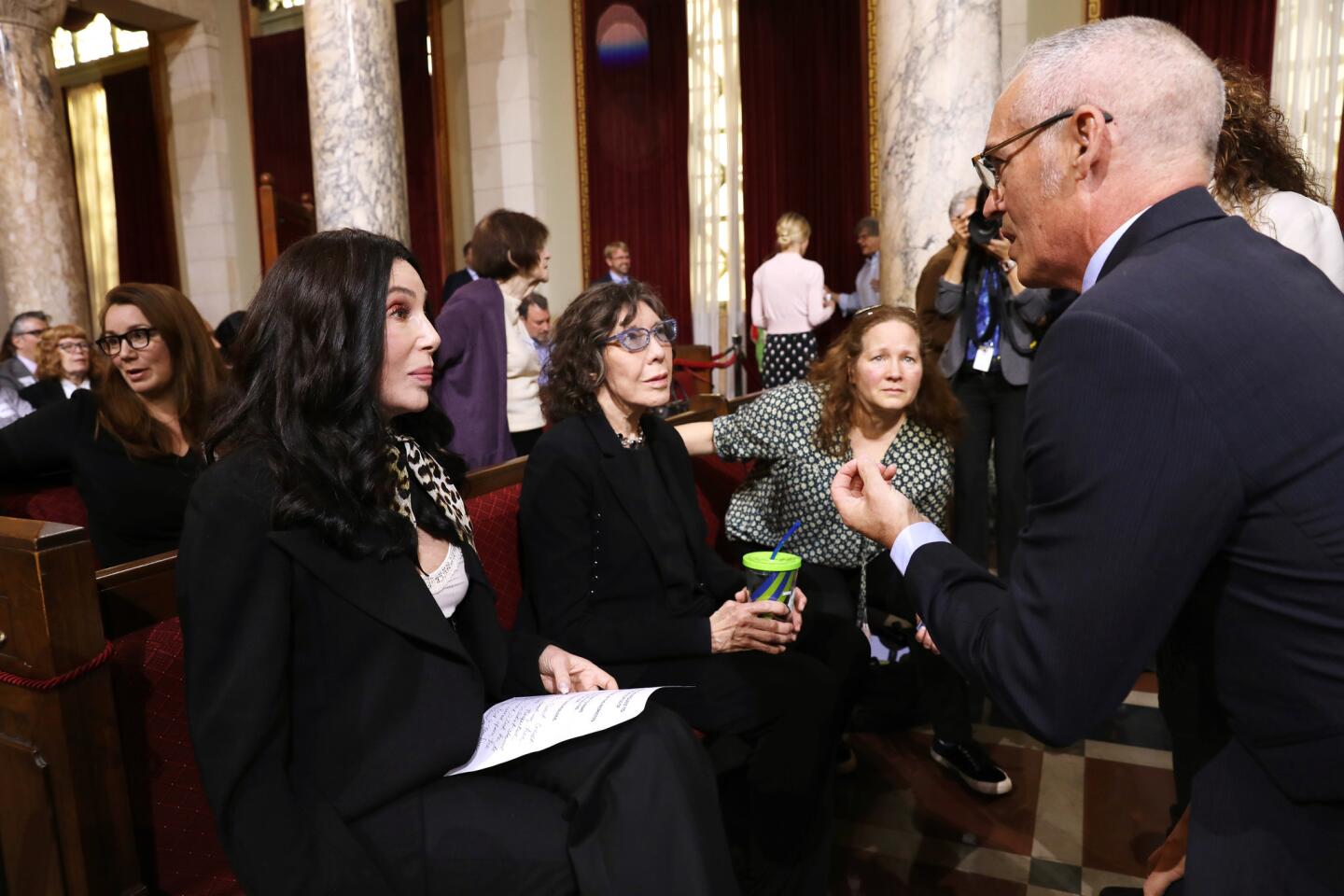Two City Council members renew push to remove Billy the elephant from L.A. Zoo
- Share via
The physical and emotional well-being of Billy, an Asian elephant kept at the Los Angeles Zoo for nearly three decades, is again being debated at City Hall.
Two members of the Los Angeles City Council want Billy moved to an animal sanctuary, a proposal supported by animal rights activists who argue the 32-year-old elephant should be allowed to retire to a preserve. Zoo representatives say Billy is well cared for by licensed veterinarians and want him to remain on the grounds.
At an emotional and raucous committee hearing Wednesday, dozens of speakers, including entertainers Cher, Lily Tomlin and Slash, of Guns N’ Roses, testified either in support or against relocating Billy.
Since Billy arrived to the zoo as a 4-year-old — a gift from the Malaysian government — his welfare has been debated by lawmakers, animal activists, elephant experts and celebrities. The City Council also considered a proposal to move Billy to a sanctuary in 2009.
Councilmen Paul Koretz and Mitch O’Farrell said in a motion that the zoo’s exhibit offers inadequate space for Billy. They also noted that Ruby, an elephant who had lived at the zoo, was sent to a sanctuary in Northern California nearly a decade ago.
“Billy has long since earned an opportunity to live free of doubts about the adequacy of his living situation,” the motion states. “Relocating him to a sanctuary is the solution and there are indications that philanthropy may be available to underwrite it, making it cost-effective for the zoo.”
The council members also want the zoo to cancel current or future elephant breeding activities. The lawmakers argue that those procedures, which include stimulating Billy’s prostate in an effort to collect his semen, are invasive.
Wednesday’s hearing drew applause and jeers as speakers weighed in on Billy’s fate. Cher, who opposes keeping Billy at the zoo, said the elephant’s well-being should be analyzed by an outside veterinarian. She cited her experience dealing with her own mother’s diagnosis of heart disease.
“I went to another doctor for a second opinion,” Cher said. “This doctor had access to a new drug that had just come out. Thank God my mother is getting this drug and my mother is going to be well. So I believe in second opinions.”
More than 50 people who oppose relocating Billy attended the hearing, many wearing green shirts. The Greater Los Angeles Zoo Assn., the nonprofit that runs the zoo’s marketing and promotion, helped organize the turnout. The group helped raise more than $20 million for the elephant exhibit.
At one point, L.A. Zoo Director John Lewis interrupted Koretz to dispute the councilman’s characterization that the semen-collection process is “unpleasant” for Billy.
“That’s not true,” Lewis said. “The door is open when that procedure happens. He can walk out at any time. He has never walked out.”
Lewis defended both the city’s breeding efforts and Billy’s health, as well as the health of three female elephants kept at the zoo, in an interview Tuesday.
“Billy and the girls get excellent care,” Lewis said. “Their caretakers have been with them for decades, and we know from their health assessments that they are in good shape.”
The council committee didn’t vote Wednesday on whether to relocate Billy. Instead, it decided to seek an independent analysis of the elephant’s health.
The zoo has been the target of a long-running lawsuit over Billy’s care. Actor Robert Culp and real estate agent Aaron Leider filed a taxpayer lawsuit in 2007 in an effort to halt construction of a new elephant exhibit and stop the zoo from keeping elephants on the grounds. Culp died in 2010 but the case continued.
In a 2012 decision, then-L.A. Superior Court Judge John L. Segal sharply criticized the zoo over its care of the elephants and ordered changes, including a requirement that the elephants be exercised for at least two hours a day. The judge, who now serves on the California Court of Appeal, also stated that the zoo was “not a happy place for elephants.”
However, the California Supreme Court last year overturned Segal’s injunction on the grounds that a taxpayer lawsuit, which relies on rules of civil law, cannot be used to stop criminal conduct. The suit brought by Culp and Leider accused the zoo of violating a criminal law against animal cruelty.
Zoo officials say they continue to follow the order of the lower court, even though it is no longer legally enforceable.
This latest effort to relocate Billy follows Koretz’s successful drive to ban in Los Angeles bullhooks and other tools that critics say are designed to inflict pain on elephants. That policy was later adopted by the state. The move was opposed by representatives of circuses, who believed the true aim of Koretz’s legislation was to stop circuses from using elephants in their shows.
Twitter: @dakotacdsmith
UPDATES:
6:05 p.m.: This article was updated to include comments from Wednesday’s committee hearing and the results of a committee vote.
This article was originally published at 11:30 a.m.
Sign up for Essential California
The most important California stories and recommendations in your inbox every morning.
You may occasionally receive promotional content from the Los Angeles Times.
